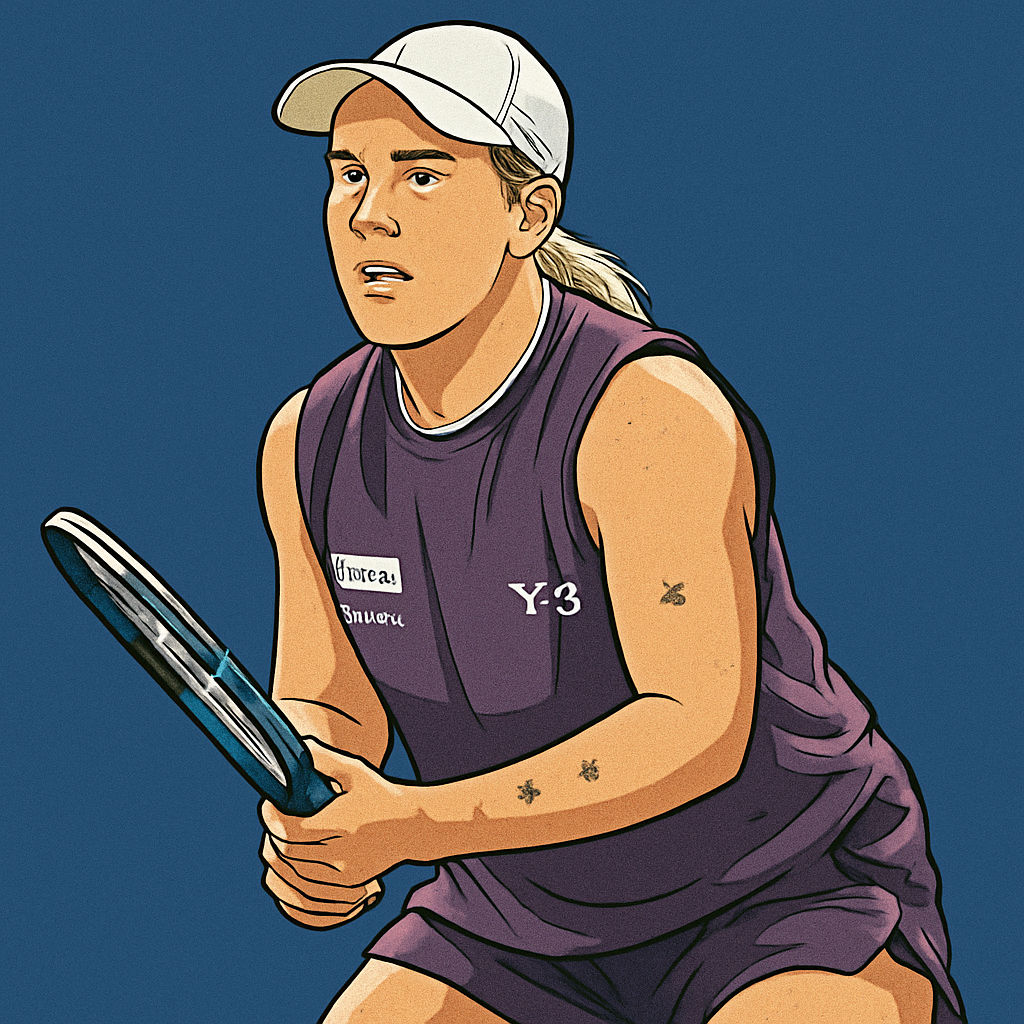NEW YORK — British tennis player Sonay Kartal described being “in a dark place” after a physically and emotionally devastating second-round loss at the US Open, where severe full-body cramps ended her Grand Slam run in painful fashion against 19th seed Beatriz Haddad Maia.
The 22-year-old qualifier, ranked No. 298 in the world, had captured the hearts of the Flushing Meadows crowd with her spirited play. However, on a sweltering Wednesday afternoon on Court 4, her body betrayed her. Leading 4-1 in the final set against the experienced Brazilian, Kartal’s muscles began to seize up, transforming a potential career-defining victory into a heartbreaking 6-3, 4-6, 3-6 defeat.
A Promising Start Turns Painful
Kartal, who had battled through three qualifying matches to reach the main draw, started the match with confidence, taking the first set 6-3. Though Haddad Maia fought back to level the match, Kartal broke early in the decider and seemed poised for a monumental upset. Then, the cramps struck with brutal suddenness.
“It just hit me like a train,” Kartal recounted in a post-match press conference, her voice heavy with emotion and disappointment. “I’ve never experienced anything like that. It started in my quads, then my calves, my abs, my hands, my arms. Everything just locked up. I couldn’t move. I couldn’t hold my racket. It was terrifying.”
A Gut-Wrenching Finale on Court
The visual was difficult to watch. At 4-2 down in the third set, Kartal collapsed to the court behind the baseline, her legs completely immobilized by excruciating cramps. The tournament physio and doctor rushed to her aid, massaging her seized muscles and administering electrolyte drinks. After a lengthy medical timeout, Kartal bravely attempted to continue, but she was a shadow of the player she had been moments before.
She managed to win one more game, but the effort was futile. Serving at 3-5, she double-faulted to hand Haddad Maia the victory, a conclusion that felt more like a surrender to her own body than a defeat by her opponent’s racket.
Haddad Maia was gracious in victory, applauding Kartal’s effort as she left the court. “It’s always tough to win a match like this,” the Brazilian said. “She was playing great tennis. I feel for her. I’ve been in that situation before with cramps, and it’s one of the worst feelings an athlete can have. She has a big heart to even try and finish the match.”
The Emotional Aftermath and Reflection
For Kartal, the physical pain was matched only by the emotional devastation of coming so close to a landmark win. Having overcome significant injuries and health challenges throughout her young career, this loss felt particularly cruel. “It’s just really tough to take,” she said, fighting back tears. “I was in a really good position. I was playing well. To lose it that way, it’s just… it’s a dark place to be right now.”
The match conditions were undeniably taxing, with on-court temperatures reportedly exceeding 100 degrees Fahrenheit (38 degrees Celsius) and high humidity contributing to the physical strain. Kartal, however, refused to blame the weather alone. “It’s my job to be physically prepared,” she stated. “I’ve put in the work. I don’t know why it happened today. Maybe it was a combination of the nerves, the heat, and the long matches in qualifying. It’s something I have to learn from.”
Looking Ahead After a Tough Lesson
Despite the agonizing nature of the loss, Kartal’s US Open run has proven her capability to compete at the highest level. Her performance included a first-round victory over world No. 29 Sorana Cîrstea, marking her first-ever main-draw win at a major championship.
The key takeaways from this experience, while painful, provide a roadmap for her future. Her game is clearly Grand Slam-ready, but the physical and mental demands of a two-week tournament present a new challenge. Moving forward, managing her body across multiple best-of-three-set matches in extreme conditions will be a critical focus.
As she left the Billie Jean King National Tennis Center, Kartal vowed to return stronger. “This hurts more than anything, but it’s not the end. It’s a lesson. I know I belong here. I know I can beat these players. I showed that for two sets. Now I have to show I can do it for three, and then again and again. I’ll get there.” For a player of her resilience, few would bet against her.

